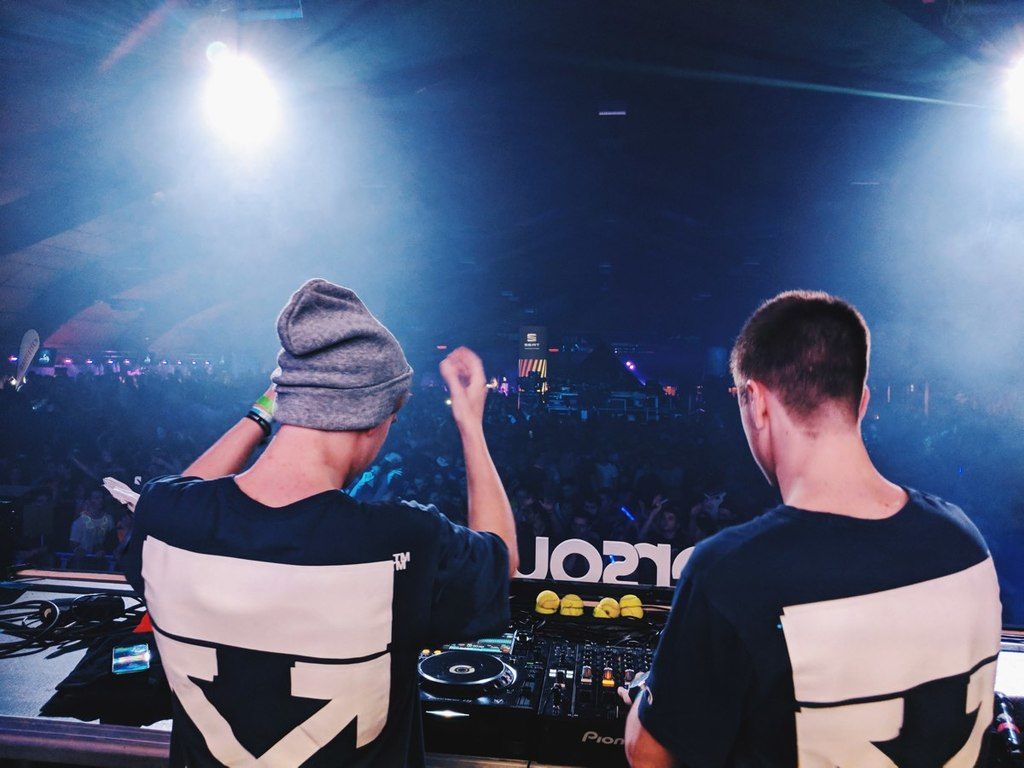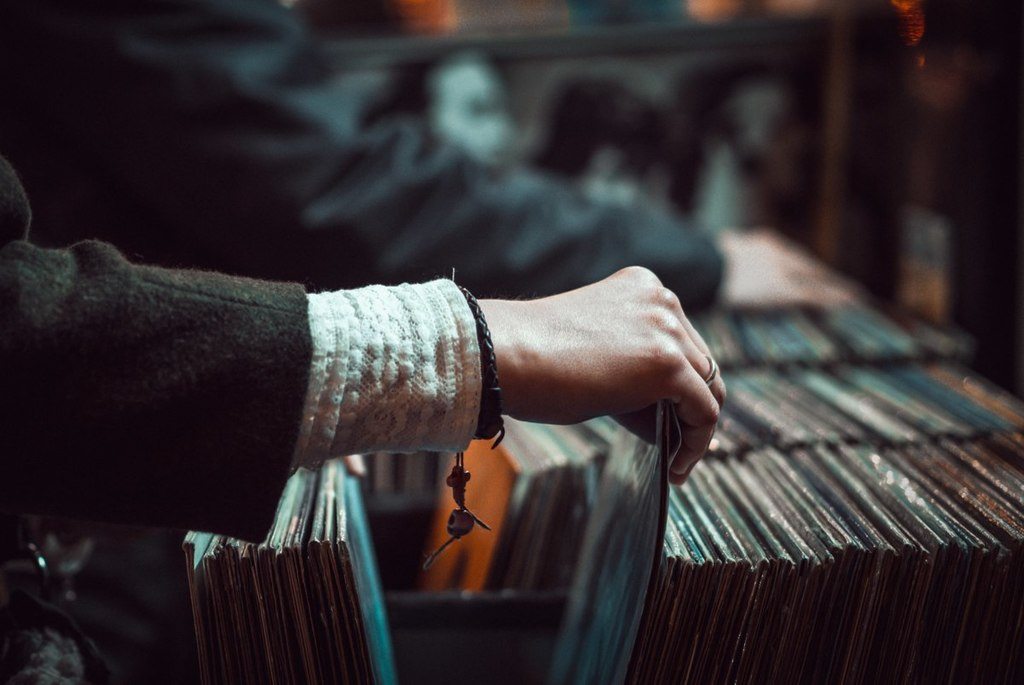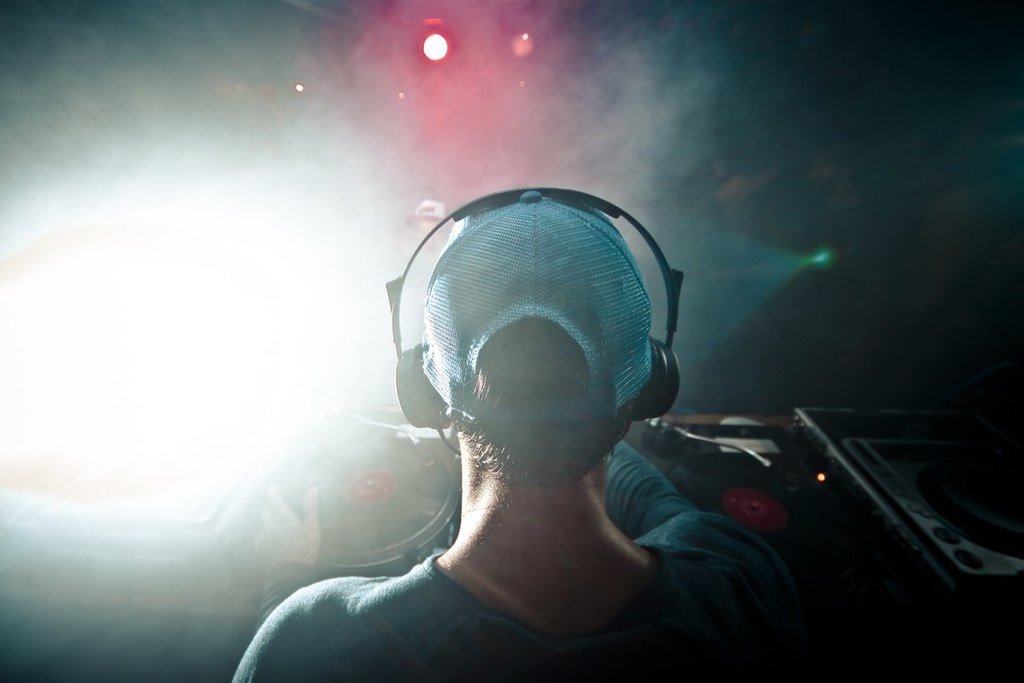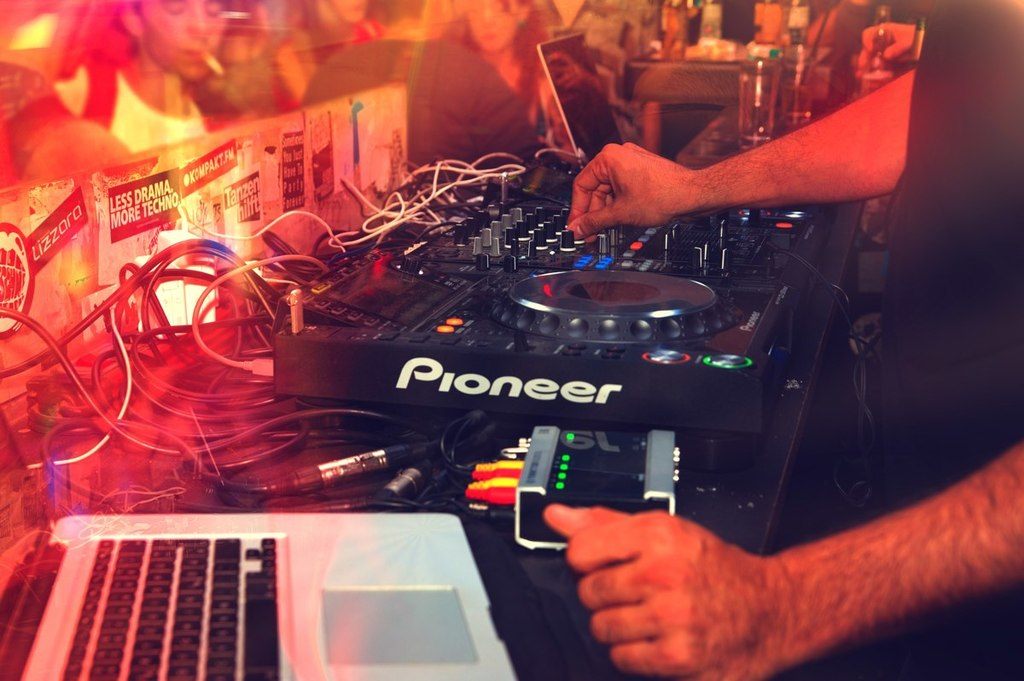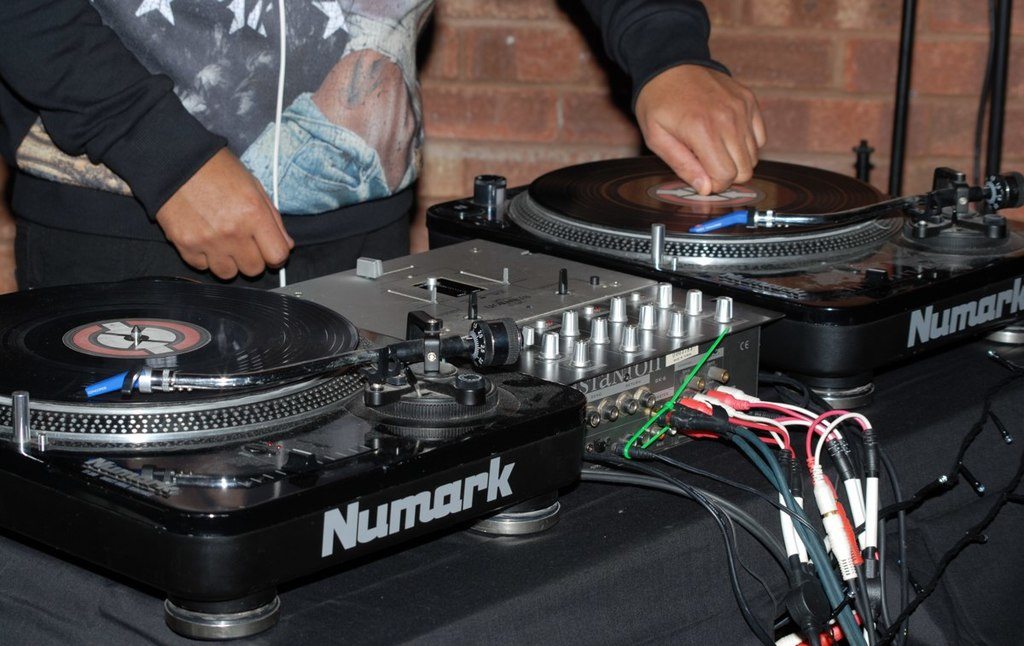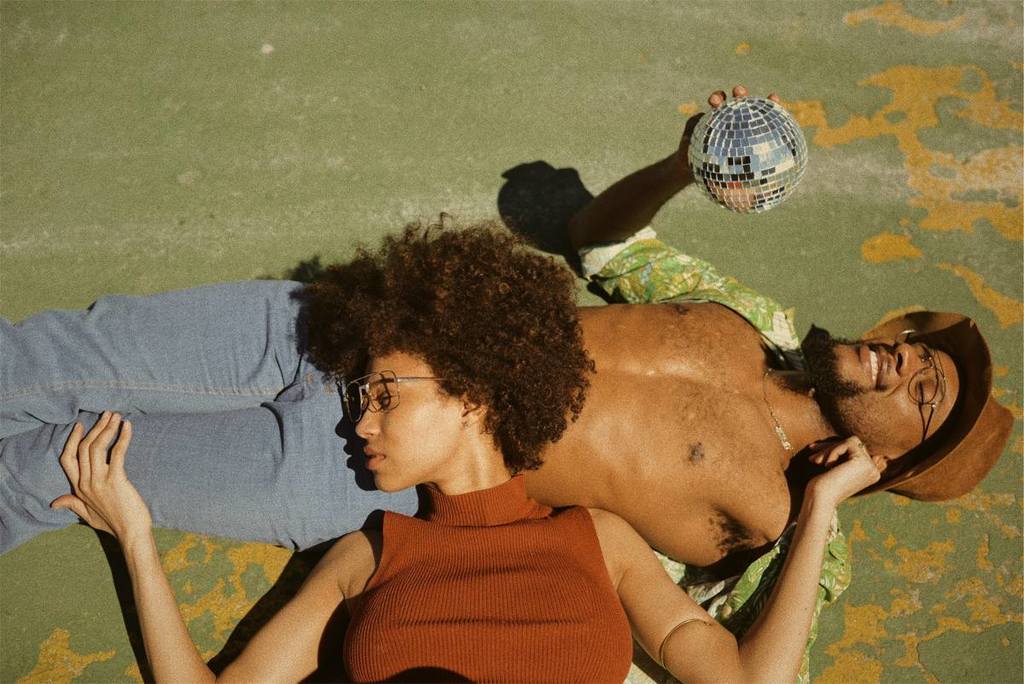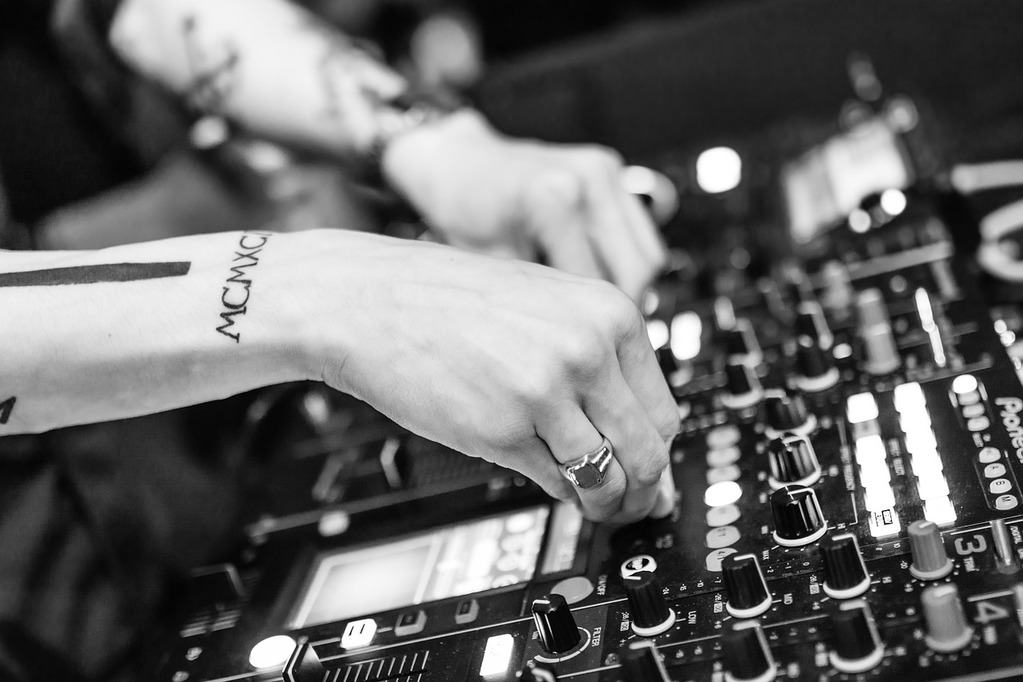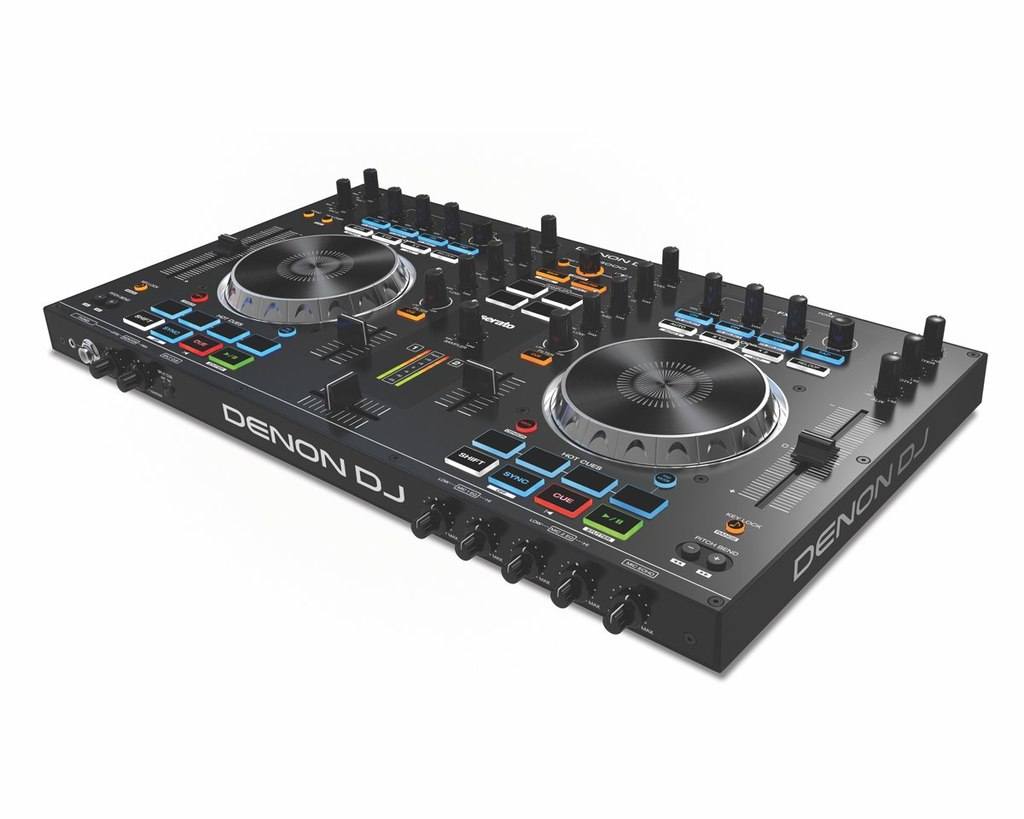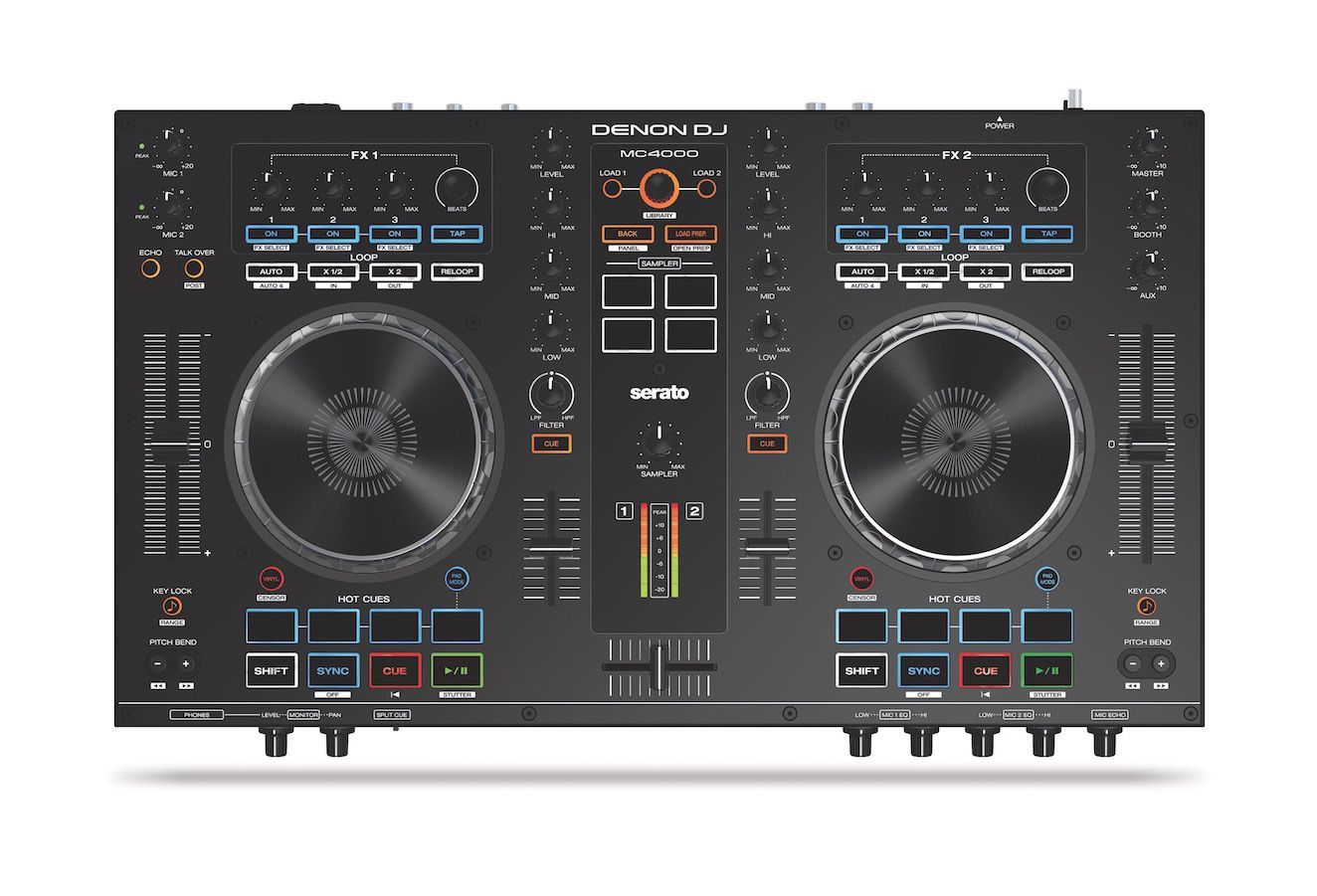In part 1 of this two-part post dedicated to DJ setups, I have covered the history as well as the pros and cons of vinyl, CD and software-only DJing. In part 2, we're moving on to more modern gear such as DVS, DJ controllers and modern digital decks. Read on to better understand these options and find out which one may be the best for you.
DVS (Digital Vinyl Systems)
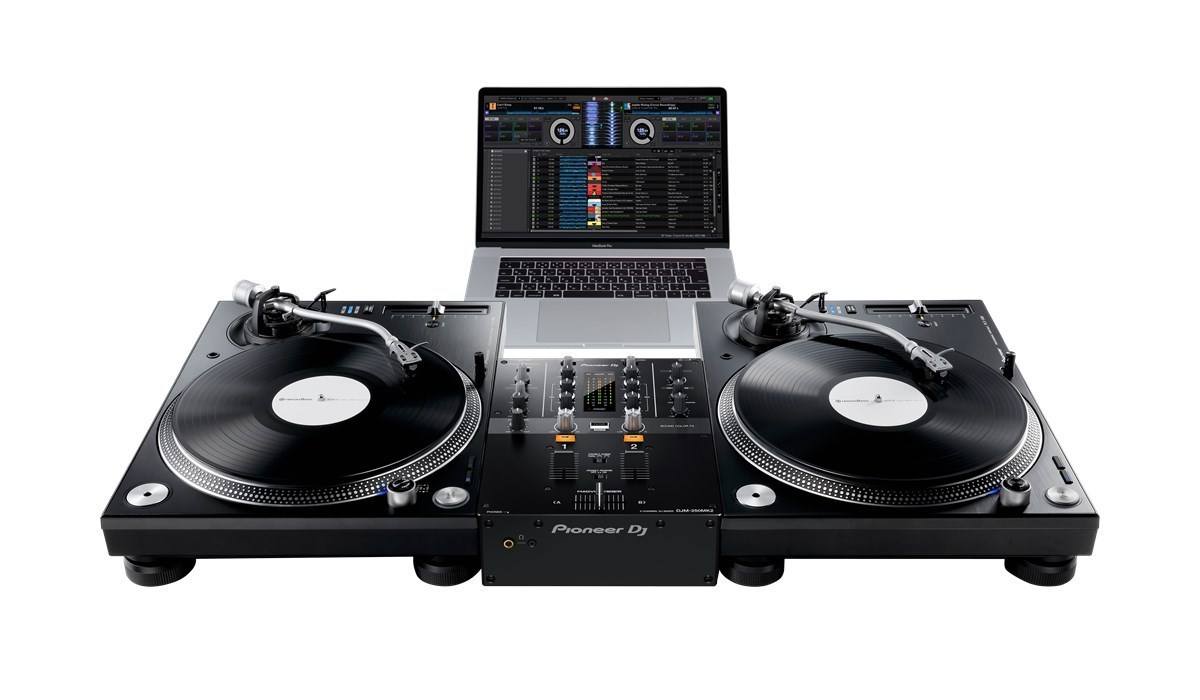
A DVS system with the Pioneer DJM-250MK2 mixer. This mixer has a DVS audio interface built in.
Once it became clear that DJing with MP3s from a computer was not only possible but also had some unique advantages (see "Software-Only" in part 1 of this post), a search began for a better way to control DJ software than a mouse and keyboard. In early 2000s, the first digital vinyl systems began to appear, which let you scratch and mix MP3s as though they were vinyl records.
